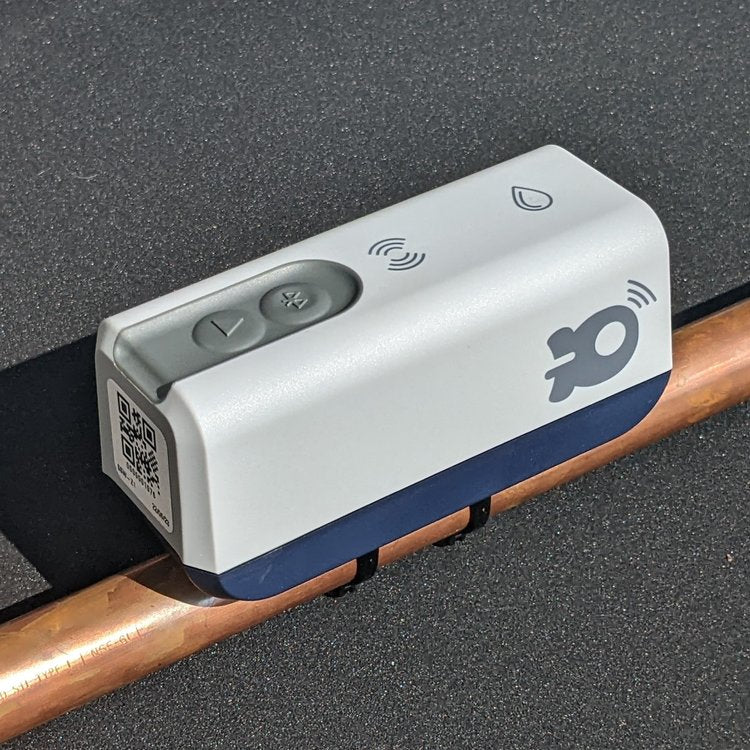Colorado HB25‑1090 Explained: Landlords’ Guide to Upfront Pricing & Water Billing Rules
Articles





Introduction
Beginning January 1, 2026, Colorado landlords must comply with House Bill 25-1090 (HB25-1090), a new law designed to increase transparency in rental pricing and utility billing. The law requires landlords to clearly advertise and disclose the full cost of renting a unit upfront—this includes any mandatory charges such as utilities or service-related fees that were previously listed separately. The goal is to ensure tenants understand the complete cost of their lease before signing.
This expanded guide is designed to help Colorado landlords understand the full scope of the law, comply with new regulations, and explore legal and transparent ways to bill tenants for utilities such as water.
If you’re currently billing tenants separately for services like water, trash, or administrative costs, this law will likely require significant changes to how you advertise, write leases, and manage tenant communication.
What Is Colorado HB25-1090 and Why Was It Introduced?
HB25-1090 is officially titled the Protections Against Deceptive Pricing Practices Act. It targets a practice known as “drip pricing,” where businesses—including landlords—advertise a low base price but tack on multiple fees at the final step, leaving consumers with a much higher total bill.
For Colorado renters, these fees have become increasingly common. According to testimony in committee hearings, some tenants pay up to $180 extra each month in fees for things like pest control, administrative costs, and trash removal.
The bill was sponsored by Representatives Emily Sirota and Naquetta Ricks, and passed along party lines. Supporters argue it will save Colorado residents thousands per year and improve affordability, while critics fear it could raise rents overall as landlords fold fees into base pricing.
Prohibited and Restricted Fees Under HB25-1090
Landlords can no longer charge the following fees unless the law makes a specific exception:
- Fees for services not provided (e.g., admin charges with no actual admin services)
- Common area maintenance fees
- Property tax pass-throughs
- Payment processing fees unless a free method is available
- Late fees for non-rent charges
Additionally, if a landlord is passing on a third-party cost (e.g., for water billing or valet trash), any markup must be written into the lease and is limited to $10/month or 2% of the underlying cost—not both.
Fees may not increase by more than 2% over the course of a one-year lease.
Violating these rules is considered a deceptive trade practice, opening the door to lawsuits, tenant refunds with 18% interest, and voiding of lease terms found to be non-compliant.
How Water Billing Fits Into HB25-1090
One of the most important carve-outs in HB25-1090 relates to utility billing. If you are using a submetering system to bill tenants for actual water usage, those charges are excluded from the “total price” that must be advertised.
This means:
- You do not have to include submetered water costs in the advertised rent
- You must still disclose them clearly in the lease
- Any markup must follow the $10/month or 2% limit
That makes water submetering one of the most legally sound and transparent billing options available to landlords.
Want a worry-free way to bill for tenant water usage that complies with HB25-1090?
Compliance Checklist for Landlords
To ensure full compliance, landlords should:
- Review leases: Eliminate outdated admin fees or miscellaneous charges.
- Update advertising: Ensure all rental listings show the full, total price a tenant must pay—excluding only actual utilities.
- Revise billing practices: Ensure utility markups are capped and disclosed.
- Add compliance clauses: Include lease language that ensures the agreement aligns with state law.
- Provide a free payment method: Tenants must be able to pay rent without incurring a fee.
- Avoid unauthorized late fees: Only charge late fees on rent—not utilities or ancillary services.
Leases active in 2026 may be subject to this law even if signed earlier. The safest move is to act now.
Need help navigating utility compliance under HB25-1090?
When and How the Law Takes Effect
HB25-1090 goes into effect on January 1, 2026. However, there is a referendum clause: if a petition is filed by August 5, 2025, the law could be delayed and placed on the November 2026 ballot.
Regardless, leases active in 2026—even if signed in 2025—may still fall under the new rules. To protect yourself, begin updating leases, disclosures, and advertising immediately.
Legal and Political Landscape
The bill is part of a broader affordability effort in Colorado. While Democrats support the bill as a protection for renters against misleading charges, some Republicans criticized it for exempting government fees and increasing regulation.
Consumer advocacy groups, the Federal Trade Commission, and the Colorado Attorney General all support the law. Landlords, property managers, and associations such as the Colorado Apartment Association have asked for clarifications but have largely accepted the finalized version.
Expect further litigation or regulatory interpretation once enforcement begins.
Final Thoughts
Colorado HB25-1090 is a transformative law for landlords. It rewards transparency and penalizes confusing fee structures. One of the clearest paths to compliance—while maintaining flexibility in utility cost recovery—is water submetering.
SimpleSUB offers HB25-1090-compliant submetering tools that simplify billing, provide daily usage reports, and protect you from overcharging or under-disclosing tenant utility costs.
Start preparing now, and you’ll avoid legal headaches later—and possibly build stronger trust with your tenants.
Disclaimer: This article is provided for informational purposes only and does not constitute legal advice. It is not intended to substitute for consultation with a qualified attorney licensed to practice in your jurisdiction. Landlords, property managers, and other readers are solely responsible for ensuring their compliance with HB25‑1090 and any other applicable federal, state, or local laws. By using this content, you acknowledge that you assume full responsibility for any decisions made or actions taken based on the information provided herein.
Request a Demo
We’ll design an affordable, easy-to-install solution for your submetering project, large or small.





